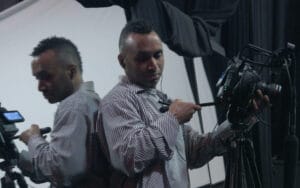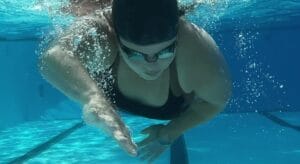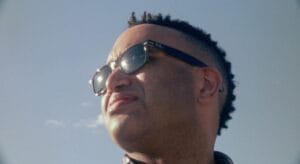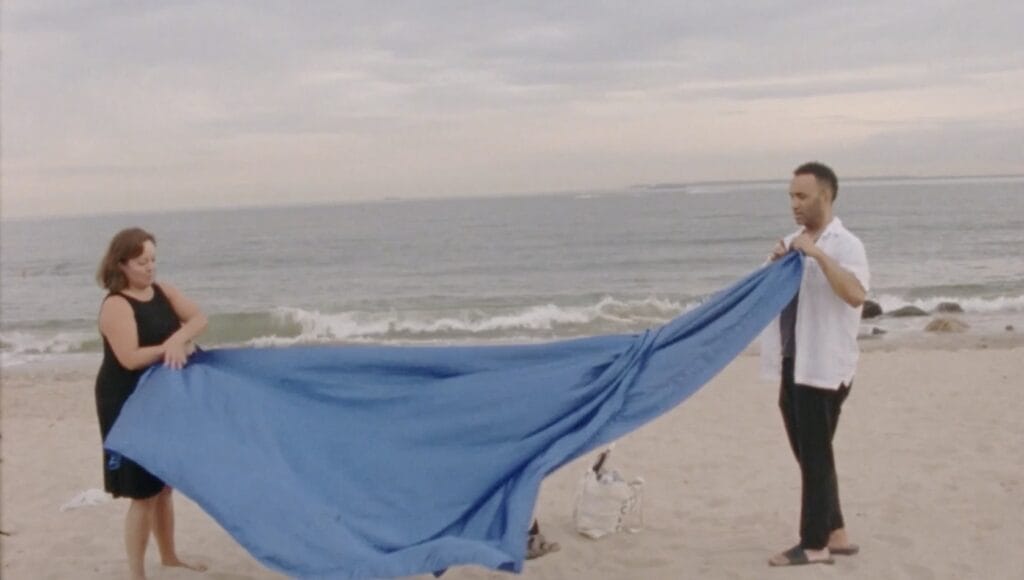Rodney Evans’ PORTAL is a documentary short that poignantly captures the silent struggles of single individuals during the first year of COVID-19, focusing on the absence of touch and how two queer, BIPOC friends sustain each other through verbal communication and connection. Part of Black Public Media’s AfroPoP Digital Shorts series, PORTAL invites us into an intimate exploration of isolation and companionship.
Rodney Evans is a celebrated filmmaker known for his work that explores themes of identity, history, and marginalized voices. He gained widespread recognition with his debut feature film Brother to Brother (2004), which won a Special Jury Prize at the Sundance Film Festival. His subsequent films, including The Happy Sad (2013) and Vision Portraits (2019), continue to highlight the experiences of LGBTQ individuals and people of color, cementing his reputation as a powerful storyteller dedicated to amplifying underrepresented perspectives.
PORTAL begins in a quiet and still atmosphere, with Rodney methodically making his bed. The initial calm is soon broken by the stark narration, reflecting on the harsh reality of going without human touch for several months. “It is really hard to go over a year without another human being touching you without gloves, a mask, a face shield on for medical examination,” he shares, setting the tone for the deeply personal and universal themes that follow. “Who knows all the psychological scars, all the single people will have from having endured this.”

Rodney’s melodic narration of diary entries transports the viewer into his memories, accompanied by the ambient sounds of the calming and inevitable rolling waves of a shoreline. “Dinner Party, Outdoor Patio, August 2020. You sit next to me one foot apart, all guests are unmasked thinking the open air will save us. Your friend touches your shoulder as he departs and it’s like you are melting with longing. You walk me home, we hug, you whisper I’m not going to let you go that easy. I smile through my mask and I think you are smiling too.”
These moments of tranquility are visually depicted through still shots of Rodney sleeping in bed. When he wakes up, he pauses before throwing a casual glance at the camera. His gaze is both an invitation and a recognition, reminding us, the viewers, of our shared collective experience of the pandemic.
Halfway through, the film switches perspectives to co-writer, Homay, shown breathing deeply with eyes closed, while recounting her experience with COVID through a phone call with Rodney. Her struggles with dry heaving coughs, the fear of having a respiratory condition, and the isolation of being unable to go anywhere are viscerally felt. “In terms of like sexual intimacy or the possibility of sexual relationships, I would say never say never, but it’s certainly not something I want to rush into right now, it’s something that would require a lot of trust, some time, patience. I just feel more fragile and vulnerable than I used to.”
The scene shifts to her affectionately beckoning her cat, the small smile on her face a testament to the comfort of simple companionship. It is also revealed that a part of her weekly ritual and something that brings her comfort is swimming laps in a pool. The slow motion shots of her arms slicing through the blueness and the water rippling around her body, capture the therapeutic rhythm and freedom of movement. Homay explains the liberation she feels. “It’s actually literally a freedom from gravity, the impact of gravity on your body and the weight and the pain, for me, just goes away when I’m floating in water,” she says, comparing it to being in outer space.

Rodney’s narration returns, and this time he talks about the comfort he receives from navigating through public with a walking stick during COVID-19. With this walking stick, a perimeter of social distance is effortlessly created as everyone around him makes sure to give him way. The visual shot shows Rodney walking alongside the pier, with his black shades on and his walking stick tapping against the pavement as he makes his way closer and closer to the camera. “It would not get me. Vigilant to the point of paranoia and then I finally take the mask off and breathe in the hope of new tactile sensations.”
This scene introduces themes of disability and its intersection with other identities of BIPOC and queer individuals. The visual and narrative elements highlight how disability changed the way different people operated within the pandemic, serving as a poignant conversation starter on how people experienced COVID differently, with greater effects on certain communities. The film moves on to a playful, almost childlike exchange of suntan lotion between Rodney and Homay, a simple act of reciprocity that symbolizes their deep connection and mutual support. Together, they chant, “Ocean mist letting you know that more is still to come and you will be ready. And on some days, you might have that strangely familiar feeling that you’re experiencing what used to be called everyday life.”

The film ends with shots of them swimming together in the ocean, untethered and free. As the credits roll, we hear a phone call between Rodney and Homay discussing their mutual support during the pandemic. This final conversation unveils the beginnings of this collaborative project, emphasizing the film’s theme of connection and shared experiences.
Directed, produced, and edited by Rodney Evans, PORTAL explores the nuanced complexities of maintaining safety and responsibility during a global pandemic, especially for those within the disability community, and yet being confronted with the detrimental effects it had on mental health. It delves into the paranoia and unique challenges faced by those who were already navigating the world differently, and how COVID-19 exacerbated these struggles. The film addresses the lack of intimacy for single people during the pandemic and its profound effects on the body, mind, and soul—concerns that were often overlooked but are now coming to the forefront.
PORTAL is a powerful reflection on the enduring human need for connection and touch, and the resilience of the human spirit in the face of unprecedented isolation. Rodney Evans masterfully breaks the fourth wall, inviting viewers to be part of this intimate journey, reminding us that despite the physical distance, our shared experiences bind us together.
To support the film you can watch it on Black Public Media’s YouTube page as part of the AfroPoP Digital Shorts collection.
To learn more about Rodney Evans and his work, visit his website and follow him on Instagram @rodneybevans













